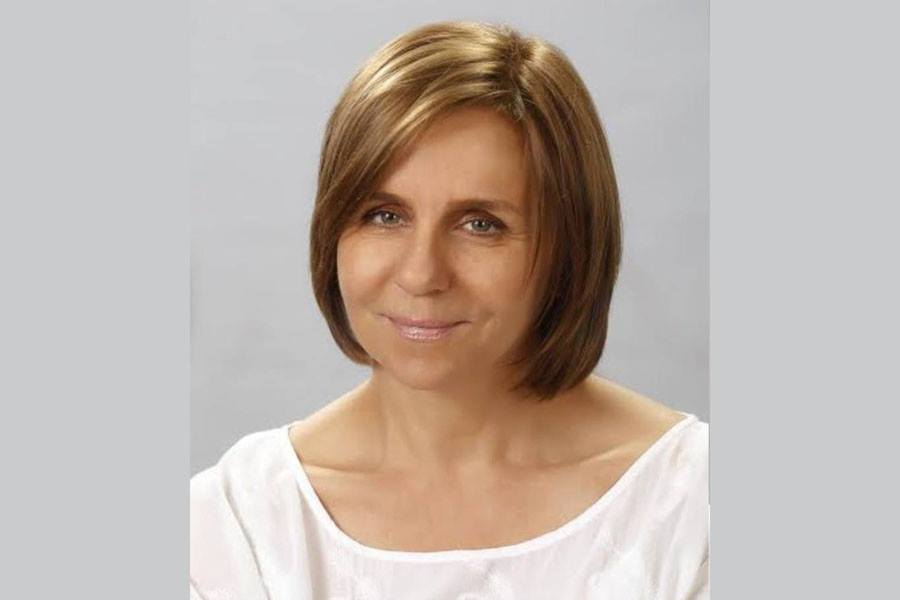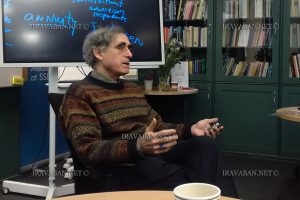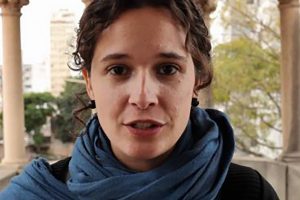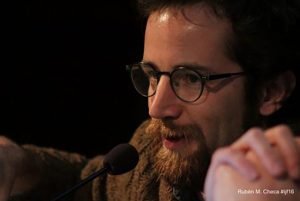The Hope of Arab Journalists in the Middle East
Investigative journalism is currently living through one of the hardest stages ever to be remembered. Worldwide state laws restrict freedom of expression and work against journalists and public access to information. Many journalists spend their lives inside the four walls of a cell. On top of it, in Arab States the society plays a key role and the lack of its support to the journalistic work makes the survival of this honorable profession difficult.
In such times, she founded Arab Reporters for Investigative Journalism (ARIJ). The acronym also refers to an Arabic name meaning “the beautiful scent of a flower.” Since 2005, ARIJ has risen as a halo of light in the gloom, becoming the region’s leading media support network; the lighthouse that educates, guides and protects brave and committed Arab investigative journalists. That is the project and the mission in Rana Sabbagh’s life.
Passionate for giving a voice to the voiceless and characterized by a strong sense of justice and integrity, in 1999 Rana Sabbagh became the first Arab woman in the history of the Levant to run a daily political newspaper. Today, she talks to Iravaban.net about her challenges and achievements throughout her 35 years of experience in the profession.
You graduated in Communications Art major in drama and minor in journalism from the Lebanese American University in 1980 and you were even waiting for a scholarship to do a master in drama in the US. What happened? What made you turn to journalism instead?
“My grandfather advised me not continue with my studies: “If you get a master nobody would want to marry you” he said. Imagine!”
Thus, while waiting for a scholarship that never arrived, RanaSabbagh started to intern at the Jordan Times newspaper. “I was lucky I had a good mentor,” she said, referring to then the paper’s Chief Editor George Hawatmeh. “He would just throw my papers back at my face and tell me “You call this a piece of work? Go and fix it” ten times… He made me work hard to become a professional.”
In 1999, she was named the Chief Editor of the journal, becoming the first Arab woman to run a daily political newspaper in the history of the Levant.
RanaSabbagh also talked aboutdifferent factors that led her to a successful career in journalism. On the one hand,she pointed out the business background of her family which allowed her to develop a politically free mind and a clear and independent thinking. On the other hand, she said that since she was a kid she had always worked for equality and justice, making sure that everyone was granted at least their minimal basic rights: “Even at school I had a sense for defending other children that were abused.”
Finally, she referred to the benefits of being raised in an environment where German and Arabic values were mixed.“Being half-German and half-Jordan made me who I am today,” RanaSabbagh stated. This combination of values allowed her to fight with the German determination and the Arabic passion during the past 35 years. “I am a perfectionist, I was raised on the convictions that nothing comes for free and that you have to work hard to get somewhere in life, along with the conviction that you need to be kind and help people… I never give up,” she added.
When RanaSabbagh started in 1984, there were only four women doing political reporting. Nowadays, the percentage of women working in the field has increased and yet journalism in Arab States remains a male-dominated profession.
In your opinion, what are the additional challenges that female investigative journalists face in Arab States?
“Journalists in general are victims of the oppressive political and social system in the Arab World… The common denominator shared with male journalists is the repressive political context,” she said.
However, in addition to that, women face the most difficult situation as they routinely deal with gender discrimination, sexual harassment and intimidation. The biggest problem for women in Arab States is that no laws criminalize attempted rape, as these attempts are always considered to be the women’s fault.
In RanaSabbagh’s opinion, in Arab States it is very difficult to survive in the profession as a woman. “When you get married in this culture, you are the house cleaner, the cook, the one who raises the child, plus you also have your job.” The reality is that “a lot of women end up leaving their jobs or taking part-time jobs because they cannot reconcile it, and those who try to reconcile bothoften end up with divorce,” she added.
She said that it is impossible to be a professional if you have to tell your boss that you cannot cover a demonstration that has suddenly happened because you need to nurse your baby or go home to cook for your husband. “It just doesn’t make sense,” she said.
Sabbagh recalledthat when she had started as a political journalist at Reuters Agency in 1987, “It was the best school in journalism”. “I think women work ten times as much as men because they don’t just have to prove themselves that they can do it but also to the society,” she said.
Finally, there are also a lot of women who use their physical charm and looks to get somewhere. RanaSabbagh always tells female journalists at ARIJ the following: “You have to work ten times harder than men, constantly develop your skills and respect yourselves, above all… You cannot intend to be treated fairly and equally if you don’t tell that to yourself.” This is the key if you live in a men-dominated patriarchal society where women are just objects of decoration.
How did you overcome all these challenges? How did you make the others look at you as a professional and not as a woman?
“My career journey has never been easy, neither was it for thousands of other female journalists here and around the world,” she stated. “I survived because I was raised by a German mother who never treated me differently from my two brothers; we were equals.”
She said that this fact gave her enough confidence in herself as a woman, as well as in respecting herself as an equal to men. As said, in Arab culture mothers teach their daughters to have a low profile, not to argue and accept everything the man says for the sake of peace. “I was lucky my mother was not like that,” she stated.
“I had to cover demonstrations regardless of my sex or gender. I always tried to project myself as a professional, not as a woman. I never said no to a boss who asked me to go out and cover running riots, like the one Jordan witnessed in 1988/89, or the Gulf War of 1991, or the civil war in Beirut, where shells flew past my ears more times than I could count,” she said.
In order to do this,RanaSabbagh always tried to suppress her sexual identity by wearing shapeless long dresses, or wide-legged trousers and shirts, in order to make men respect her as a professional.
What kinds of threats are investigative journalistsfacing in Jordan and Arab States?
“The situation of journalism in Jordan was never great but now it is even worse looking in the media records at the regional level,” she said. In fact, Arab States are the worst region already for six years in a row.
Right now, holding officials accountable is getting more complicated and dangerous, journalists are being jailed and killed and censors are clamping down on independent reporting. Since the Arab Spring, the region is not safe anymore but for RanaSabbagh “especially the last three years had been the worst years of my 35 years as a journalist”.
In Jordan, as in Europe, there are new anti-terror laws that restrict freedom of expression and free speech in the name of fighting terror. The reality though is that they are selectively used for vetting journalists. For example, RanaSabbaghmentioned that she cannot go to Egyptanymore because ARIJ, together with the BBC Arabic Channel, investigated the systematic human rights abuses of police cadets by their bosses in a TV investigation called “Death in Service.” After its broadcast, both the BBC and ARIJ were criticized in a trending hashtag. The journalist who did the investigation, was fired by his employers to avoid state threats to close down the paper.
Under the new anti-terror law in Jordan, she said, “I could be accused of engaging in acts of terror and undermining ties between Jordan and a brotherly state, if I wrote an opinion-editorial criticizing, say, the human rights record of the Egyptian president.”
“We have oppressive and corrupt governments and leaders, very old-fashioned laws restricting freedom of speech and, on top of it, we have a society which doesn’t accept being self-critical.”
In some cases, journalists have more to worry about than just the government. They are also vulnerable to manipulation at the hand of fake news and fake whistleblowers that don’t really intend to improve governance; economic realities are complicating their lives.
You mentioned that society doesn’t support the profession of journalism in Jordan. Can you give an example?
“Sometimes societies are more undemocratic than governments,” she emphasized, and actually “living in such an insecure society makes journalists’ life more difficult in Jordan and Arab States.” There is a lack of support to the profession of journalism that is usually accused of threatening the stability and sometimes even threatening Islam.“Sometimes we are held up as anti-regime or anti-Arab when we ask questions and write criticism,” she added.
As a matter of fact,Sabbaghreferred to one investigation conducted by ARIJ on the situation of mentally challenged Jordanians. “They were being sexually assaulted and abused, harmed and ill-treated by their caregivers who happened to be veiled women. Once we published the information, we started being under a lot of attacks. We were accused of harming the image of the country and also accused of trying to harm the image of Islam. Our argument was that the female journalist that conducted the investigation wasactually veiled, too. In addition, Islam says that by helping people with disabilities you would earn a point for heaven, thus revealing the situation was putting society back to the right path.”
However, inSabbagh’s opinion, the biggest threatsjournalists face are just themselves. “Many journalists in Arab countries do not achieve professional standards, neither do they comply with the ethics rules in journalism,”she said, adding,“many times officials don’t believe that my journalists are professionals and I have to accompany them when we are investigating and when there is a need of confronting people.”
In such an environment, how do you see the future of journalism in Jordan?
“The new generation,” she said, “is a bit different from them. Today’s journalists often think that they have a sense of entitlement that in the second year they would become the directors without going into the whole process and without gaining incremental on the job experience.”RanaSabbagh expressed concern about the real aim of “good and traditional journalism” getting lost. “The sense of being a watchdog in the society is being lost, giving a voice to the voiceless and afflicting those that had been abused by the system.”
“Investigative journalists amount up to 6% of journalists worldwide, and the others are just routine journalists who get a salary to be at the office from 9am to 5pm. I don’t blame them because it is a matter of choice. But at the end of the day,many of us also feel we have a mission in life, which is to make the society a better society and the world a better place.”
“Journalism is a very demanding job, even more so in the Arab States. A journalist needs to take calculated risks here, when confronting the powers and putting them into account so as not to get killed before publishing an investigation.” Sabbaghnoted that even such safe topics as health, education or women’s rights are becoming problematic.
However,Sabbagh reiterated that through ARIJ investigative journalism will continue requesting free speech and spreading honest, fact-based reporting, which are in her opinion the “indispensable ingredients of a democratic society.” She stated, “We fought to initiate them in this region, we fight to maintain them, and we don’t intend to give them up now.”
How would you evaluate the use of technology in journalism?
Technology is giving us new platforms for sharing and exposing the data but I honestly think that when I started the quality of the media product was very much higher than today. Traditional journalism is better than today’s journalism.
In my days, if I needed to find something in the archives, I needed two days to find it. This made me read three times more and come across more things. Today journalists are waiting for Twitter to beep and tell them where to go to look for news. It would not be possible for me to get news if I waited for them sitting in my chair; I needed to go to the streets and become an eyewitness.
But technology has brought leaks and has somehow made the job of a journalist easier. What do you think?
Indeed. Leaks are very useful because they give you a lead, a starting point. But it is not possible to publish a leak without investigating if it is true. I think that if a journalist has ready data and enough evidence or documents proving that someone is a thief, there is nothing wrong in going to the court or to jail. But good journalism needs to be honest and true. Verification of data is compulsory. In this sense, technology has made it easier to disseminate data.
However, there is always a need to humanize the story and give a voice to the afflicted. Technology in this sense doesn’t make it easier for the good journalism and even becomes a threat in a certain sense.
Technology creates a barrier that makes it difficult to get better relations with the sources and have the face-to-face interview that would allow the journalist to establish trust with the source and take more information in this way.In many cases, it is agood article even if it doesn’t have one picture and is 10,000 words long, and you read it from the beginning to the end because it is written in a nice way.
What makes ARIJ so special?
Since 2005, ARIJ has been the project of my life and the lives of so many journalists who are working with our support and coaching.
This was the first time that Arab journalists had gone after Arab rulers, even dictators, and uncovered their financial dealings. Thus, it set an important precedent. The region did not have a tradition of investigative journalism before and ARIJ promoted it along with free speech and independent media.
More than 460 investigations have been published/broadcast. Every investigation sparked change to the better, sometimes in small dozes and sometimes with big steps. More than1,869 reporters had been trained by ARIJ since 2005. ARIJ even played a crucial role in the Panama Papers.
ARIJ helps journalists to conceive ideas, gather evidence and write compellingly. No project has been challenged in courtso far as ARIJ assists with pre-publication legal screening to try to mitigate the risks. We have exposed human rights abuses, corruption, miscarriages of justice and consumption issues in a region that is among the worst in the world for media freedom and free speech.
There is a lot of work that is yet to be done and press freedom has been in free fall for the past five years in the Arab States. But ARIJ and ARIJEANS will not give up.
RanaSabbaghkeeps working to make the society a better society and the world a better place with the belief that life is like a wheel taking you up and down all the time.
Everything depends on how you adapt yourself.
“I was lucky I had a good mentor,” she said, referring to then the paper’s Chief Editor George Hawatmeh. “He would just throw my papers back at my face and tell me “You call this a piece of work?! Go and fix it” ten times… He made me work hard to become a professional.”
Interview by José Nicolas Dominguez Mendoza,
EVS Volunteer at the Armenian Lawyers’ Association
Author of the Idea: Astghik Karapetyan








